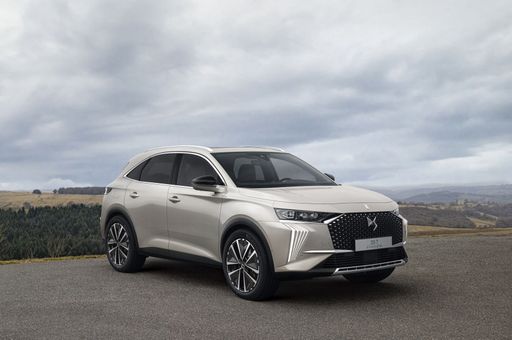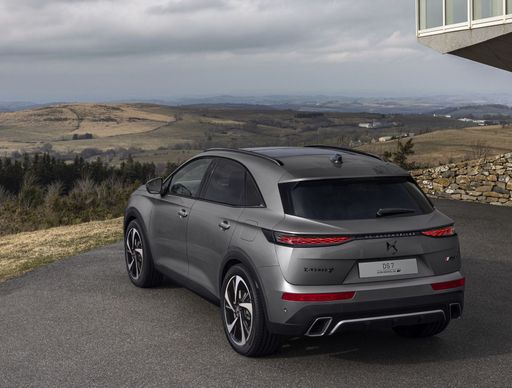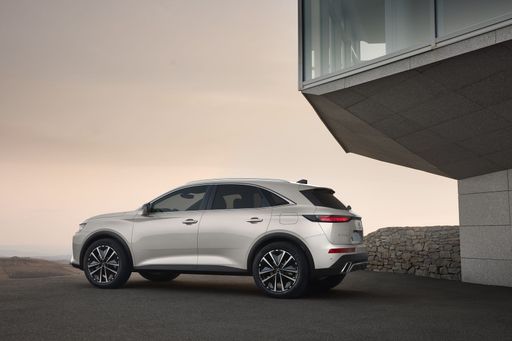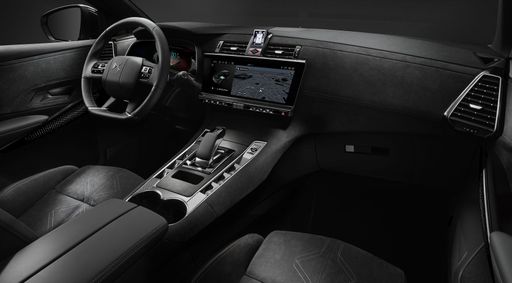DS Automobiles DS 7 vs Peugeot 208 – Which model is better for everyday use?
Everyday use, family trips or long-distance drives – here’s where the differences show.
Discover whether DS Automobiles DS 7 or Peugeot 208 fits your lifestyle better.
Costs and Efficiency:
Looking at overall running costs, both models reveal some interesting differences in everyday economy.
Peugeot 208 has a convincingly advantage in terms of price – it starts at 20700 £, while the DS Automobiles DS 7 costs 41900 £. That’s a price difference of around 21198 £.
Fuel consumption also shows a difference: DS Automobiles DS 7 manages with 1.30 L and is therefore decisively more efficient than the Peugeot 208 with 4.50 L. The difference is about 3.20 L per 100 km.
As for range, the Peugeot 208 performs decisively better – achieving up to 432 km, about 367 km more than the DS Automobiles DS 7.
Engine and Performance:
Under the bonnet, it becomes clear which model is tuned for sportiness and which one takes the lead when you hit the accelerator.
When it comes to engine power, the DS Automobiles DS 7 has a convincingly edge – offering 360 HP compared to 156 HP. That’s roughly 204 HP more horsepower.
In acceleration from 0 to 100 km/h, the DS Automobiles DS 7 is decisively quicker – completing the sprint in 5.70 s, while the Peugeot 208 takes 8.30 s. That’s about 2.60 s faster.
In terms of top speed, the DS Automobiles DS 7 performs to a small extent better – reaching 235 km/h, while the Peugeot 208 tops out at 200 km/h. The difference is around 35 km/h.
There’s also a difference in torque: DS Automobiles DS 7 pulls significantly stronger with 520 Nm compared to 270 Nm. That’s about 250 Nm difference.
Space and Everyday Use:
Cabin size, boot volume and payload all play a role in everyday practicality. Here, comfort and flexibility make the difference.
Both vehicles offer seating for 5 people.
In curb weight, Peugeot 208 is decisively lighter – 1165 kg compared to 1651 kg. The difference is around 486 kg.
In terms of boot space, the DS Automobiles DS 7 offers distinct more room – 555 L compared to 352 L. That’s a difference of about 203 L.
In maximum load capacity, the DS Automobiles DS 7 performs noticeable better – up to 1750 L, which is about 587 L more than the Peugeot 208.
When it comes to payload, Peugeot 208 minimal takes the win – 430 kg compared to 424 kg. That’s a difference of about 6 kg.
Who wins the race?
The DS Automobiles DS 7 proves to be is largely superior and therefore becomes our DriveDuel Champion!
DS Automobiles DS 7 is the better all-rounder in this comparison.

DS Automobiles DS 7
DS Automobiles DS 7
The DS 7 stands out with its striking design and luxurious comfort, making it a true embodiment of French elegance in the SUV segment. Inside, the cabin showcases a blend of high-quality materials and innovative features that cater to both driver and passenger needs. With its impressive road presence and refined driving dynamics, the DS 7 promises a captivating driving experience that doesn't compromise on style.
details @ media.stellantis.com
@ media.stellantis.com
 @ media.stellantis.com
@ media.stellantis.com
 @ media.stellantis.com
@ media.stellantis.com
 @ media.stellantis.com
@ media.stellantis.com
Peugeot 208
The Peugeot 208 exudes a distinctive French charm, combining sleek lines with an assertive stance on the road. Inside, it offers a modern and sophisticated cabin, complete with intuitive technology and high-quality finishes to enhance the driving experience. Its agile handling and efficient performance make it a delightful choice for both city commuting and longer journeys.
details @ www.media.stellantis.com
@ www.media.stellantis.com
 @ www.media.stellantis.com
@ www.media.stellantis.com
 @ www.media.stellantis.com
@ www.media.stellantis.com
 @ www.media.stellantis.com
@ www.media.stellantis.com

|

|
|
|
|
Costs and Consumption |
|
|---|---|
|
Price
41900 - 59300 £
|
Price
20700 - 35200 £
|
|
Consumption L/100km
1.3 - 5.5 L
|
Consumption L/100km
4.5 - 5.2 L
|
|
Consumption kWh/100km
-
|
Consumption kWh/100km
14.1 - 15.4 kWh
|
|
Electric Range
50 - 65 km
|
Electric Range
362 - 432 km
|
|
Battery Capacity
12.90 kWh
|
Battery Capacity
46 - 51 kWh
|
|
co2
30 - 145 g/km
|
co2
0 - 117 g/km
|
|
Fuel tank capacity
43 - 55 L
|
Fuel tank capacity
44 L
|
Dimensions and Body |
|
|---|---|
|
Body Type
SUV
|
Body Type
Hatchback
|
|
Seats
5
|
Seats
5
|
|
Doors
5
|
Doors
5
|
|
Curb weight
1651 - 2002 kg
|
Curb weight
1165 - 1530 kg
|
|
Trunk capacity
555 L
|
Trunk capacity
309 - 352 L
|
|
Length
4593 mm
|
Length
4055 mm
|
|
Width
1891 mm
|
Width
1745 mm
|
|
Height
1625 mm
|
Height
1430 mm
|
|
Max trunk capacity
1750 L
|
Max trunk capacity
1118 - 1163 L
|
|
Payload
398 - 424 kg
|
Payload
380 - 430 kg
|
Engine and Performance |
|
|---|---|
|
Engine Type
Diesel, Plugin Hybrid
|
Engine Type
Petrol, Electric, Petrol MHEV
|
|
Transmission
Automatic
|
Transmission
Manuel, Automatic
|
|
Transmission Detail
Automatic Gearbox
|
Transmission Detail
Manual Gearbox, Reduction Gearbox, Dual-Clutch Automatic
|
|
Drive Type
Front-Wheel Drive, All-Wheel Drive
|
Drive Type
Front-Wheel Drive
|
|
Power HP
130 - 360 HP
|
Power HP
101 - 156 HP
|
|
Acceleration 0-100km/h
5.7 - 11.9 s
|
Acceleration 0-100km/h
8.3 - 10.9 s
|
|
Max Speed
195 - 235 km/h
|
Max Speed
150 - 200 km/h
|
|
Torque
300 - 520 Nm
|
Torque
205 - 270 Nm
|
|
Number of Cylinders
4
|
Number of Cylinders
3
|
|
Power kW
96 - 265 kW
|
Power kW
74 - 115 kW
|
|
Engine capacity
1499 - 1598 cm3
|
Engine capacity
1199 cm3
|
General |
|
|---|---|
|
Model Year
2024 - 2025
|
Model Year
2023 - 2025
|
|
CO2 Efficiency Class
E, B
|
CO2 Efficiency Class
D, A, C
|
|
Brand
DS Automobiles
|
Brand
Peugeot
|
What drive types are available for the DS Automobiles DS 7?
The DS Automobiles DS 7 is available as Front-Wheel Drive or All-Wheel Drive.
The prices and data displayed are estimates based on German list prices and may vary by country. This information is not legally binding.
